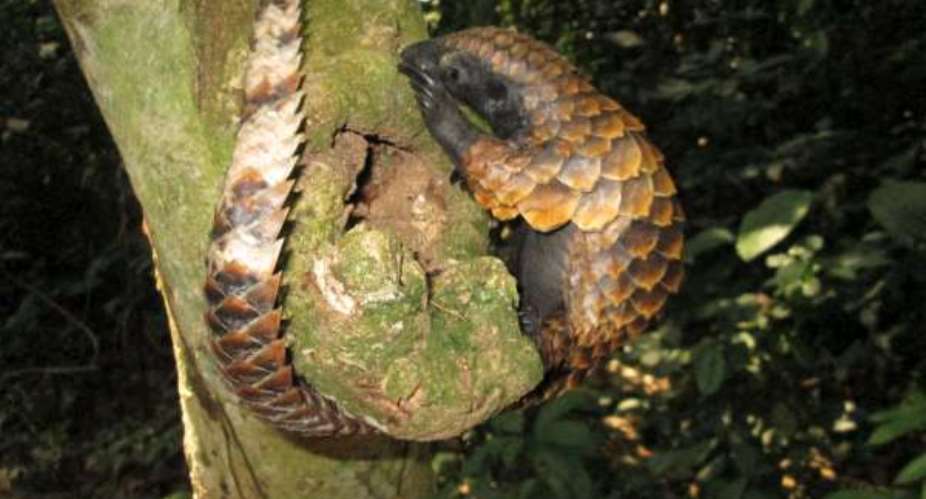World’s most illegally-trafficked mammal granted greatest protection possible from international trade
International wildlife charity, Born Free Foundation, has welcomed the decision by delegates at the 17th meeting of the Conference of Parties (CoP17) to the Convention on International Trade in Endangered Species (CITES), to give all eight species of pangolin the greatest possible protection from international trade.
Gabriel Fava, Associate Director for Asia at Born Free Foundation, who is attending CoP17, said: “Efforts by pangolin range countries to enable this outcome are to be applauded indeed. Pangolins the world over face intense threat from markets in Asia dealing in pangolin scales, meat, skin and blood. It has been aptly said that ‘the law without enforcement is only good advice’, and now that the trade is effectively banned, the work continues outside of meeting halls – all along the supply chain, from pangolin habitat to retail outlets.”
Pangolins are under severe threat from illegal wildlife trade and are the world’s most illegally trafficked mammal. Recognising this, delegates at CoP17, which is taking place in Johannesburg, South Africa until 5th October, voted overwhelming in favour of increasing protection for the Sunda and Chinese pangolins, transferring them from Appendix II to Appendix I of CITES - effectively a ban in all commercial international trade. The support for proposals to also place the remaining six species on Appendix I was overwhelming, and the Indian, Philippine, Cape, black-bellied, white-bellied, and giant pangolin were summarily given the greatest protection under CITES, without going to a vote.
Support came from far and wide: delegates from countries in Asia spoke in favour of the African pangolin proposal, delegates from African countries showed their support for the three Asian proposals, and countries with no pangolins all spoke in favour of an Appendix I listing for ALL species, highlighting the recognition that this approach was critical for preventing the laundering of pangolins, thus dramatically improving the potential for effective law enforcement.
Manori Gunawardena, Born Free’s Country Representative in Sri Lanka, where the Indian pangolin is found, said: “Pangolins are known as a secretive species in Sri Lanka - its population and ecology remain largely a mystery. The strong endorsement of increased protection for this species with the revised CITES listing is laudable and gives countries with pangolins a much needed breathing space – to discover more about these species and help improve their conservation.”
The population decline of Asian pangolins is believed to have led to the African species – giant, Cape, black-bellied and white-bellied - coming under increasing threat from intercontinental trade. Adding to this threat are the growing economic ties between Africa and Asia, and the high profit/low risk of the trade until now. The African species are also threatened from hunting due to their consumption in west, central and southern Africa.
CITES aims to ensure that international trade in a species of animal or plant does not threaten their survival. It is an international treaty between governments and is legally binding. Every three years, the member countries (or Parties) of CITES meet to review the impact of international trade on various species at the CoP, making changes to their protection and to how the Convention operates.
Born Free will be providing key updates throughout CITES CoP17 via press releases, its website www.bornfree.org.uk , on Twitter using the hashtag #BFFCITES, Facebook, and video blogs on YouTube.





 Former Kotoko Player George Asare elected SRC President at PUG Law Faculty
Former Kotoko Player George Asare elected SRC President at PUG Law Faculty
 2024 elections: Consider ‘dumsor’ when casting your votes; NPP deserves less — P...
2024 elections: Consider ‘dumsor’ when casting your votes; NPP deserves less — P...
 You have no grounds to call Mahama incompetent; you’ve failed — Prof. Marfo blas...
You have no grounds to call Mahama incompetent; you’ve failed — Prof. Marfo blas...
 2024 elections: NPP creates better policies for people like us; we’ll vote for B...
2024 elections: NPP creates better policies for people like us; we’ll vote for B...
 Don’t exchange your life for wealth; a sparkle of fire can be your end — Gender ...
Don’t exchange your life for wealth; a sparkle of fire can be your end — Gender ...
 Ghana’s newly installed Poland train reportedly involved in accident while on a ...
Ghana’s newly installed Poland train reportedly involved in accident while on a ...
 Chieftaincy disputes: Government imposes 4pm to 7am curfew on Sampa township
Chieftaincy disputes: Government imposes 4pm to 7am curfew on Sampa township
 Franklin Cudjoe fumes at unaccountable wasteful executive living large at the ex...
Franklin Cudjoe fumes at unaccountable wasteful executive living large at the ex...
 I'll 'stoop too low' for votes; I'm never moved by your propaganda — Oquaye Jnr ...
I'll 'stoop too low' for votes; I'm never moved by your propaganda — Oquaye Jnr ...
 Kumasi Thermal Plant commissioning: I pray God opens the eyes of leaders who don...
Kumasi Thermal Plant commissioning: I pray God opens the eyes of leaders who don...
